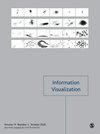可见自然语言处理
IF 2
4区 计算机科学
Q3 COMPUTER SCIENCE, SOFTWARE ENGINEERING
引用次数: 5
摘要
一般来说,自然语言处理(NLP)算法表现出黑盒行为。用户输入的文本和输出没有解释如何获得结果。为了增加理解和信任,用户重视透明的处理,它可以解释导出的结果,并能够理解底层的例程。在设计NLP工具时,许多方法默认采用不透明的方法,并且不包含引导和操纵中间NLP步骤的方法。我们提供了一个交互式、可定制的可视化框架,使用户能够观察和参与NLP管道过程,明确地操作每个步骤的参数,并根据用户偏好直观地探索结果。然后将可见NLP(VNLP)管道设计应用于文本相似性应用程序,以展示可见透明NLP管道在支持用户理解和证明过程和结果方面的实用性和优势。我们还报告了一位现代语言专家对我们的框架的反馈。本文章由计算机程序翻译,如有差异,请以英文原文为准。
VNLP: Visible natural language processing
In general, Natural Language Processing (NLP) algorithms exhibit black-box behavior. Users input text and output are provided with no explanation of how the results are obtained. In order to increase understanding and trust, users value transparent processing which may explain derived results and enable understanding of the underlying routines. Many approaches take an opaque approach by default when designing NLP tools and do not incorporate a means to steer and manipulate the intermediate NLP steps. We present an interactive, customizable, visual framework that enables users to observe and participate in the NLP pipeline processes, explicitly manipulate the parameters of each step, and explore the result visually based on user preferences. The visible NLP (VNLP) pipeline design is then applied to a text similarity application to demonstrate the utility and advantages of a visible and transparent NLP pipeline in supporting users to understand and justify both the process and results. We also report feedback on our framework from a modern languages expert.
求助全文
通过发布文献求助,成功后即可免费获取论文全文。
去求助
来源期刊

Information Visualization
COMPUTER SCIENCE, SOFTWARE ENGINEERING-
CiteScore
5.40
自引率
0.00%
发文量
16
审稿时长
>12 weeks
期刊介绍:
Information Visualization is essential reading for researchers and practitioners of information visualization and is of interest to computer scientists and data analysts working on related specialisms. This journal is an international, peer-reviewed journal publishing articles on fundamental research and applications of information visualization. The journal acts as a dedicated forum for the theories, methodologies, techniques and evaluations of information visualization and its applications.
The journal is a core vehicle for developing a generic research agenda for the field by identifying and developing the unique and significant aspects of information visualization. Emphasis is placed on interdisciplinary material and on the close connection between theory and practice.
This journal is a member of the Committee on Publication Ethics (COPE).
 求助内容:
求助内容: 应助结果提醒方式:
应助结果提醒方式:


